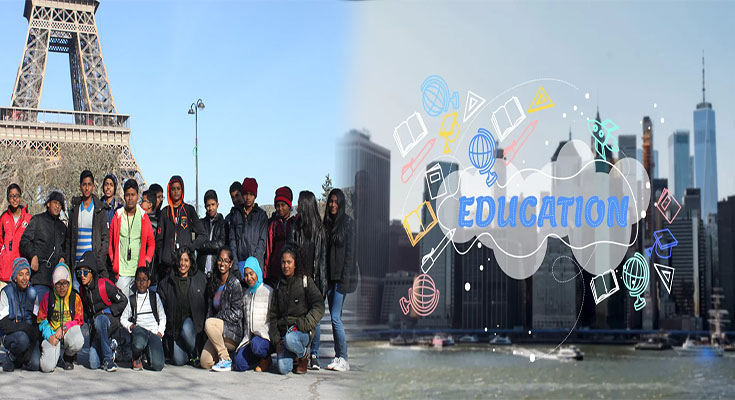Higher education is undergoing transformational developments on a global scale, driven by demographic shifts, technological advancements, economic changes, and evolving societal needs. From internationalization efforts to curriculum innovations, these developments are shaping the future of higher education institutions worldwide. In this article, we will delve into the global perspectives on the key developments in higher education and their implications for the sector.
Internationalization and Global Engagement:
Higher education institutions are increasingly embracing internationalization as a strategic priority. This includes expanding study abroad programs, fostering global partnerships, and recruiting diverse cohorts of international students and faculty. Global perspectives in curriculum design and research collaborations are gaining momentum, positioning institutions to prepare students for a globally interconnected world and advance cross-cultural understanding.
Digital Transformation and Online Education:
The proliferation of digital technologies has paved the way for a significant shift toward online education and digital learning platforms. Higher education institutions are investing in e-learning infrastructure, virtual classrooms, and interactive resources to expand access to education and enhance learning experiences. The global perspective on online education emphasizes the potential to reach learners beyond geographical boundaries and accommodate diverse learning styles.
Emphasis on Workforce Alignment and Employability:
There is a growing emphasis on aligning higher education with workforce needs and enhancing graduate employability. Global perspectives recognize the importance of integrating practical skills, career readiness programs, and industry partnerships into curricula to ensure graduates are well-equipped for the evolving job market. Institutions are embracing co-op programs, internships, and vocational courses to bridge the skills gap and drive economic development.
Diversity, Equity, and Inclusion Initiatives:
Higher education is placing greater focus on diversity, equity, and inclusion, reflecting the global imperative to create inclusive learning environments. Efforts to increase representation of underrepresented groups, support diversity in leadership, and embed inclusive practices in teaching and research are gaining traction. Global perspectives acknowledge the role of higher education in fostering social mobility, addressing systemic inequalities, and preparing students to thrive in diverse societies.
Research and Innovation Ecosystems:
The global landscape of higher education is characterized by vibrant research and innovation ecosystems. Institutions are establishing interdisciplinary research centers, fostering knowledge exchange networks, and promoting entrepreneurship and technology transfer. Global perspectives acknowledge the role of higher education in driving scientific advancements, addressing grand societal challenges, and incubating the next generation of innovators and leaders.
Sustainable Development and Environmental Stewardship:
Higher education developments are increasingly aligned with sustainable development goals and environmental stewardship. Institutions are integrating sustainability education across disciplines, implementing green campus initiatives, and engaging in research on climate change and sustainable practices. Global perspectives underscore the responsibility of higher education in addressing global sustainability challenges and cultivating environmentally conscious citizens.
Policy Reforms and Quality Assurance:
Policy reforms and quality assurance mechanisms are shaping the global higher education landscape. Governments and regulatory bodies are revising accreditation standards, funding models, and governance frameworks to enhance accountability and academic quality. Global perspectives emphasize the need for transparent and equitable policies that support institutional autonomy, academic freedom, and the pursuit of excellence in teaching and research.
The global perspectives on these developments present both opportunities and challenges for higher education institutions. Embracing a global outlook encourages collaboration, knowledge exchange, and mutual learning among diverse institutional contexts. However, it also requires navigating cultural nuances, regulatory complexities, and ethical considerations in a globalized educational environment.
The global perspectives on higher education developments underscore the interconnectedness of institutions and the imperative to leverage innovative approaches to address current and future challenges. Embracing a global mindset in higher education not only enriches the learning experience but also empowers institutions to contribute meaningfully to the advancement of society and the global knowledge economy.





